8 Fixes for iPhone Won't Send Pictures to Android
A frustrating scenario: You're an iPhone 13 Pro Max user and just snapped the perfect photo, and you want to share it with your friends on an Android phone. You tap send, and nothing happens. For many, this iPhone won't send pictures to Android issue will appear. While it is such a headache, this article will dive into the common culprits and, more importantly, give eight fixes for iPhone not sending pictures to Android. Get back to sharing your precious moments today!
Guide List
Why Won't My iPhone Send Pictures to Android 8 Ways to Fix iPhone Not Sending Pictures to Android Transfer Photos and Albums in GBs from iPhone to AndroidWhy Won't My iPhone Send Pictures to Android
Having trouble sending pictures from your iPhone to an Android can occur due to various reasons. Before getting inside the top 8 fixes for this issue, below are the most common reasons why you're facing 'iPhone won't send pictures to Android':
• iMessage Compatibility. iPhones have iMessage for Apple-to-Apple communication, but sending to an Android phone needs MMS. If this is turned off, your photo won't be sent.
• Cellular Data is Turned Off. MMS depends heavily on a cellular data connection. If your mobile data is disabled, your iPhone photo won't be sent.
• Network or Carrier Issues. Having a poor signal with your carrier can also affect the sending of MMS messages.
• Outdated Carrier Settings/iOS Version. Since carrier settings are crucial for messaging features, if they are not updated, it may cause failures in sending pictures.
• Blocked Contacts. If the Android number is blocked, messages, including pictures, won't go through.
• Messaging App Glitches. Sometimes, the Messages app may experience glitches, causing messages, including pictures, to fail to send.
8 Ways to Fix iPhone Not Sending Pictures to Android
After identifying the possible culprits to your iPhone can't sending pictures to Android issue, there are several ways to fix it. Shared today are eight simple yet effective fixes, each with quick steps and a breakdown of their pros and cons.
1. Enable MMS Messaging
Open the "Settings" app on your iPhone, then scroll down to locate the "Messages" app. From here, toggle "MMS Messaging" to ON to send photos from iPhone to Android.
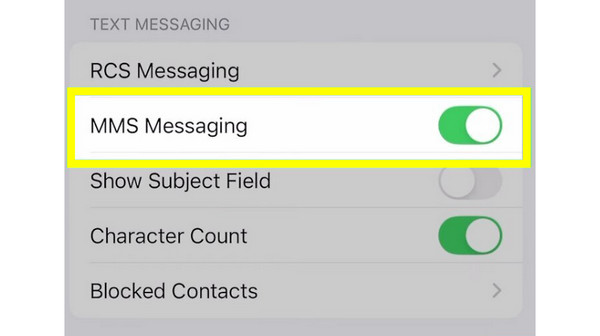
Pros
A crucial setting for sharing photos on other platforms.
Quick to change in Settings
Cons
It may not work if your carrier has no MMS support.
Uses cellular data together with Wi-Fi.
2. Turn on Cellular Data
Once you're in the "Settings" app, tap on the "Cellular" section, then ensure to turn ON the "Cellular Data" switch.
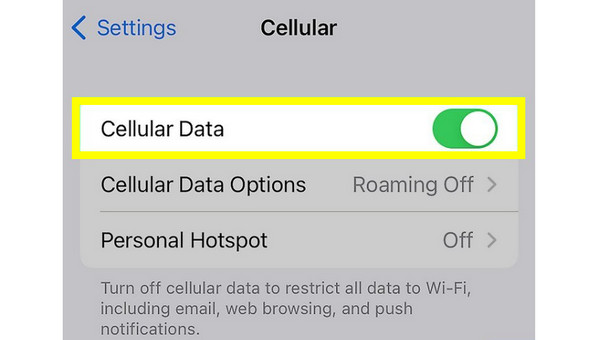
Pros
Quick to do and effective.
Enables MMS and other services.
Cons
It won't help in areas with a weak signal.
It can eat up your data plan.
3. Check Carrier Settings
Go to "Settings", then select "General" and tap "About". Wait for a while, then, if an update is available, tap "Update" to fix iPhone won’t send photos to Android issue.
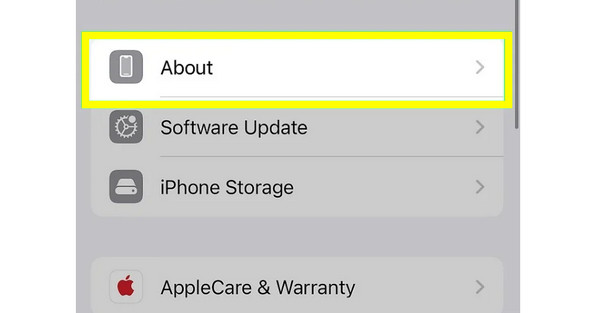
Pros
Ensure smooth performance with your mobile provider.
It only takes a minute to perform.
Cons
No option for checking for updates.
It might already be updated, offering no fix.
4. Restart Messages App
For iPhones without a Home button, swipe up to open the "App Switcher"; meanwhile, for iPhones with a Home button, double tap the Home button. Swipe up on the "Messages" app to close it; after a few seconds, reopen it.
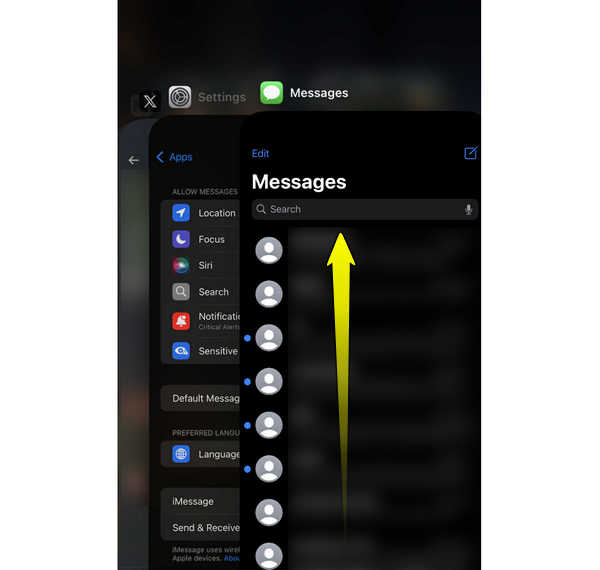
Pros
Fast solving method.
Can fix minor glitches within the app.
Cons
Do not address network problems.
Temporary fix for system-level issue.
5. Reset Network Settings
Open the "Settings" app, head to "General", then scroll down to find the "Transfer or Reset iPhone " section; please tap on it. Tap "Reset", and select "Reset Network Settings ". Enter your iPhone passcode to confirm the action. After that, try again to check if your iPhone send pictures to Android.
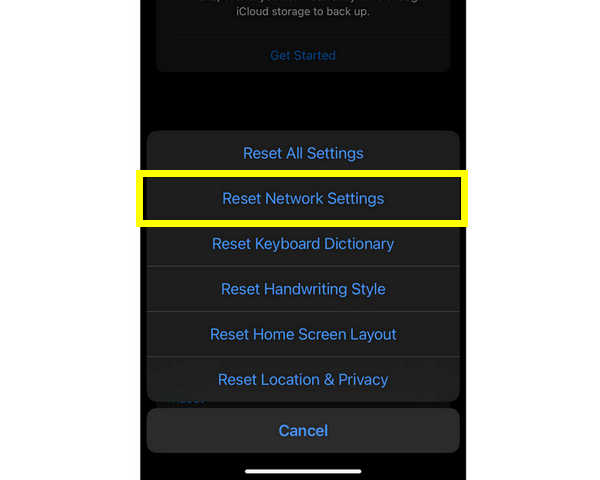
Pros
Fixe deep connection issues.
Do not affect your photos or apps.
Cons
Remove saved Wi-Fi passwords.
Need reconfiguration.
6. Restart Your iPhone
Simply hold down the "Power " button together with the "Volume Down " button, then slide down to "Power Off " ("Power " button for iPhone 8 and below). Wait for a few seconds, and turn it back on.
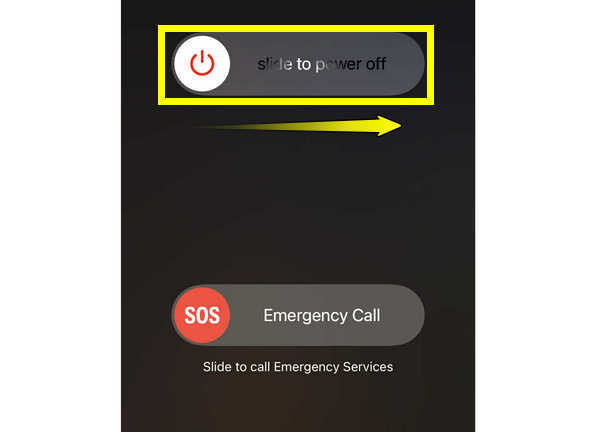
Pros
It is simple and low-risk.
Often resolves random or connection glitches.
Cons
Only a temporary solution.
7. Update iOS
Run the "Settings" app, then navigate to "General" and select "Software Update ". If there's an available update for your system, tap the "Update Now " button.
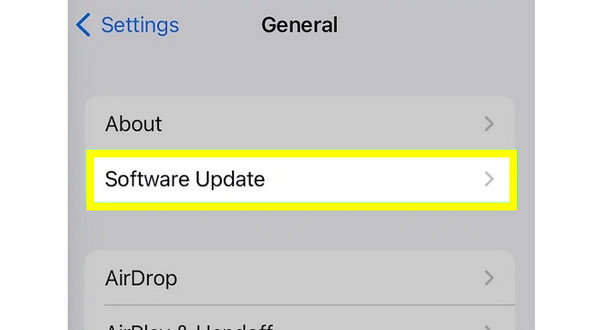
Pros
May fix bugs and outdated issues.
Improve security and performance.
Cons
It might take time and storage space.
8. Use Another Messaging App
From the Apple App Store, you can install an app like WhatsApp or Telegram to transfer pictures from iPhone to an Android device. Ensure to add your contact, then send messages directly. You can even send videos from Android to iPhone.
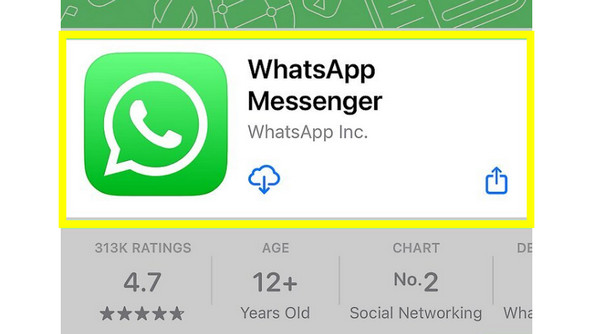
Pros
It transfers photos over Wi-Fi.
Maintain better image quality.
Cons
Both users have the same app.
Adds an extra messaging platform to manage.
Transfer Photos and Albums in GBs from iPhone to Android
But what if you have to move a massive photo library from iPhone to Android? If your iPhone holds GB of pictures and videos, traditional transfer methods can be painfully slow or can’t send iPhone pictures to Android. Fortunately, there's AnyRec PhoneMover, a powerful desktop tool made to transfer data between iOS, Android, and even PC. Unlike other cloud-based options that limit file transfers, this tool allows full-resolution media transfer with no data loss. Additionally, it supports batch transfers, allowing you to move entire albums or gigabytes of images simultaneously at a high speed. Indeed, this tool can be a game-changer to transfer photos and albums from iPhone to Android.
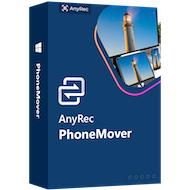
Support transferring data between iPhone, Android, and computers.
Can organize, add, edit, delete, and do more to your files from your device.
Detect and removes duplicate files, helping to free up storage space.
Keep the original image quality throughout the transfer process.
Secure Download
Step 1.Start by launching AnyRec PhoneMover on your Windows PC. Use a USB cable to connect your iPhone (compatible with 16, 15, 16, or earlier) and your Android device to your PC. When prompted, tap on "Trust This Computer" on your iPhone to grant access.
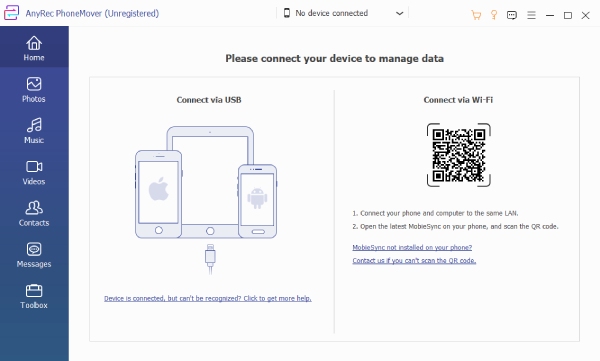
Once connected, your iPhone details, such as available storage, device name, and iOS version, will appear on the screen.
Step 2.Click on the "Photos" tab in the program. You will see all your images organized for easy viewing. To move an extensive collection, check specific photos or select "Check All" to choose everything at once. When you're ready, click the "Export to Device" button.
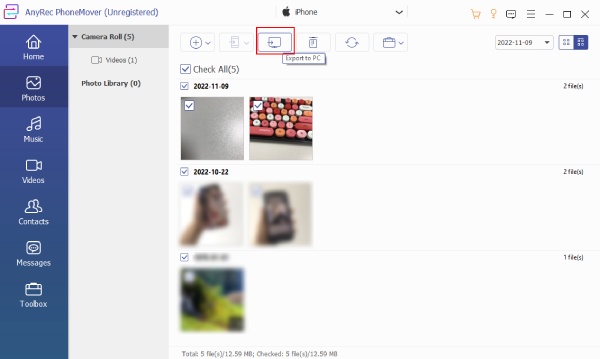
Step 3.After selecting your Android device as your destination, the transfer will begin. AnyRec PhoneMover will transfer all selected photos and albums to Android's internal storage, preserving the quality, file names, and folder structure.
Conclusion
By working through the eight fixes for 'iPhone won't send pictures to Android', from basic checks to more in-depth solutions like resetting network settings, you can resolve these annoying transfer issues. But aside from these difficulties, you may have trouble sending large media files to Android. For scenarios like these, it's time to use AnyRec PhoneMover! Whether you need to transfer GB of photos and videos or backup crucial contacts and messages, the program offers a direct way to move all of them between different operating systems without losing quality.
Secure Download
